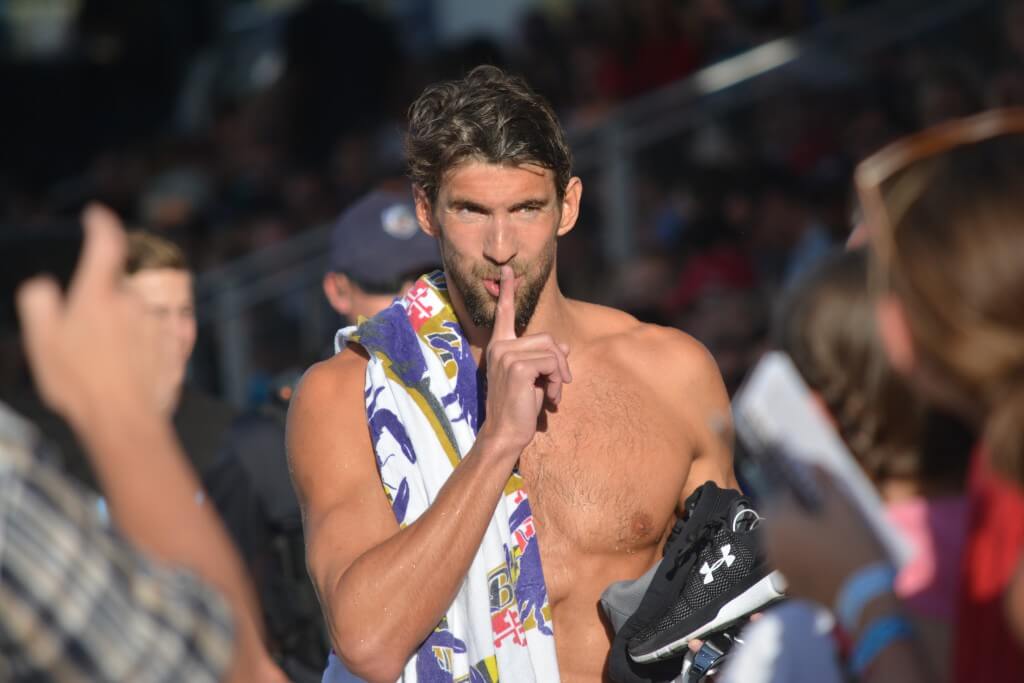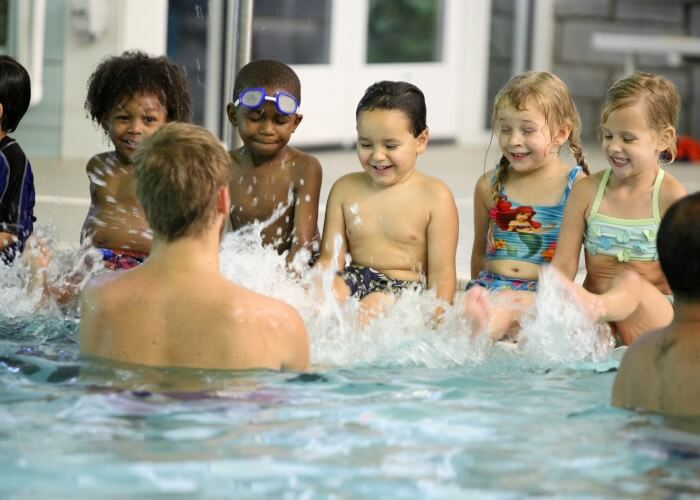Why I Never Stop Learning from Swimming

By Julia Cunningham, Swimming World College Intern
The other day I received a phone call. A fellow coach from the team I work with on campus wanted a few tips about how to teach butterfly. This coach, a former swimmer and a man much older than myself, hoped to learn something from my few years as a swimmer and even fewer years of coaching. At the same time I realized this- that swimming has been a constant learning process through the years. Learning technique, learning new technique, learning how to communicate with coaches -maybe most of the time I wasn’t even aware I was learning, but it happened.
Rewind several years to one of my first ever sleep-away camps. It was a technique clinic at the University of Michigan, back when Michael Phelps was still swimming there. I remember sitting in the over air-conditioned room watching slow motion videos of Phelps swimming fly. “This is Phelps’ stroke, which has changed over the years as he has had to work with his coach to figure out the technique best for him,” our instructor said (or something along those lines). I remember sitting there thinking, “What could Michael Phelps possibly need a coach for? Hasn’t he learned everything he needs to know by now?”
Throughout your first 20 odd years of life you sit in classes with the sole purpose of learning. It is quite obvious that the point of sitting through daily lectures is for your brain to absorb knowledge. Once you enter “real life” you continue learning, but in a much more subtle fashion. You pick up little tidbits of knowledge here and there, some that may sink in and some that may not. Swimming is the same way, but you never truly leave the classroom. While you no longer require the strict, hand-holding guidance of your eight and under years, you still show up to the pool every day to receive a two-hour lecture on stroke mechanics, intervals and really solidifying those lyrics to that song you were listening to four days ago.

Photo Courtesy: Pawel Loj, Flickr
Where does this learning come from?
For me, it started with my parents. It was my dad who took me to my first swim lessons, where I learned that crying would not get me out of something I didn’t want to do.
Next it came from the coaches, where again, I learned that crying was not effective. At the same time, I was learning how to be a swimmer.
My earliest coaches taught me how to work in a team setting, how to wait five seconds and THEN sprint to catch the feet of the person in front of me, and how intervals worked.
As I aged up and switched coaches, I learned how to adjust to change. Coaches had different teaching methods, older swimmers were much faster, and practices started to resemble a living hell. That’s when I learned another lesson from my dad: learn from those faster swimmers. What were they doing in practice? Why were they so good? I started to learn how to work hard and how to push and motivate myself. I started to test limits, and I started to improve. I started to learn how to love swimming.
Collegiate swimming is no different. It took everything I had learned in the past to succeed in college. Adjusting to change was huge–collegiate swimming is a world unto itself. I had to really test my self-motivation through for the long off-season; something that doesn’t exist so much in USA Swimming. I’ve found that in college, Swimming is as frustrating as a class that only gives you two grades for the entire semester. You really only get a few chances to demonstrate the hours and weeks of training that you’ve put in, meaning there are only so many times that you can play around with different race strategies or try a new event or even just fail. Learning not just how to race smart, but how to smartly prepare for a race is crucial in our sport.
Growing up with swimming and learning to swim are synonymous with learning valuable life lessons. The willingness to dedicate yourself so completely to a single goal is something that only happens through repetition. Learning how to confront failure, accept criticism, push through pain, keep getting up on the blocks no matter how uncertain the outcome–these are all are situations that constantly test swimmers, teaching life lessons in the process.
Learning to swim does not happens overnight. In the same way, reaping all of the rewards and figuring out everything that swimming has to offer does not come with a deadline. You don’t “graduate” from swimming. From the beginning with age group USA Swimming through collegiate swimming and until Masters Swimming, the sport will forever offer a limitless breadth of knowledge.




Credence Pattinson
Δημήτρης Ανθομελίδης